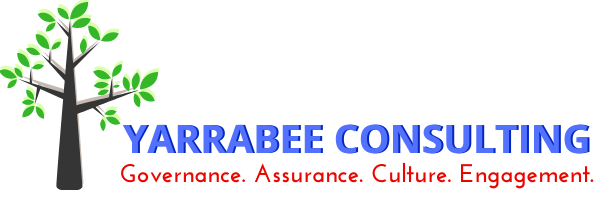A B O U T O U R
Bespoke 4-Step Culture Program
*Free resource at the end of this page
“Our staff census shows a significant reduction in unexplained staff absenteeism, incivility and claims of bullying in the areas that have implemented your program.”
WHY LEADERS ask for the CHEWI PROGRAM
This program offers all participants a unique opportunity to pause, re-assess and develop a customised and measurable workplace culture founded on mutual respect and inclusiveness. Using my Culture Toolbox, you and your colleagues uncover and implement mindsets and behaviours that rapidly improve productivity and civility, and help prevent unlawful conduct.
“Surprised at how tailored the session was and how much time and space we were given to do some independent thinking. 10/10
”
preventing unlawful workplace conduct
On 12 December 2023 the Australian Human Rights Commission announced new regulatory measures to prevent unlawful workplace conduct and champion safe work environments.
Australia’s Sex Discrimination Commissioner, Dr Anna Cody stated, ‘This is an opportunity for Australian workplaces to become what they should be - safe, inclusive, gender-equal, respectful and free from sexual harassment and sex discrimination. Organisations and businesses are now required to focus on actively preventing unlawful conduct connected to work…’
“Culture has definitely improved after developing clear culture goals through the workshops. As a leader, I was also able to learn ideas and skills to approach cultural discussions and developments with my team. ”
HOW CAN YOU BENEFIT?
You are encouraged to share your concerns respectfully and (where relevant) anonymously both online and during the workshops.
This allows you to safely and systematically identify and co-develop strategies, leveraging our Culture Toolbox, to mindfully interrupt the mindsets, and behaviours, such as unlawful conduct, that may be impeding your performance, productivity and psychosocial safety in your workplace.
“We found the whole report very useful, and the data provided is data we can take, implement and include as evidence in our Program strategy and shape our culture reform “why”.”
Our Approach
We work with you to tailor, co-design and implement a mutually respectful common language that immediately fosters professional attitudes, behaviours and clear boundaries empowering participants to shape your unique work culture to suit current and future needs.
Our programs applies a Trauma-Informed Coaching lens (re: The Centre For Healing), which is a safe somatic modality that helps individuals and groups uncover and release trauma-based beliefs and stored stress held within the body.
“Enjoyed the workshops and after care. Very interactive. Allowed people to feel included and to speak of their experience. ”
about THE chewi PROGRAM
My 4-Step Creative, Healthy and Engaged Workplaces Initiative (CHEWI) creates a safe circuit breaker for what is often described as 'normalised disruptive' communication or behaviour.
All my CHEWI programs are scalable and adaptable to your needs, align to Agile principles, and founded on my ‘Do No Harm to Me or You’ guidelines.
Workplace professionals at all levels are offered an equal opportunity to build and implement individual and team-based civil boundaries.
Participants learn a collective language that supports collegiate work practices and safely resolve issues.
Leaders and staff learn to work together to identify and safely resolve disruptive conduct respectfully, without escalating matters or shaming/blaming.
Delivery can be online or face-to-face coaching, courses, masterclasses and workshops.
Your customised workshop or course material and tailored culture implementation plan can be provided as a follow-up email, dropbox or password protected webpage.
CHEWI programs have been applied and customised by over 2,000 international and domestic participants operating at all levels and across a diverse range of sectors.
“Discovering the different forms of disrespectful behaviours, how these can escalate into work drama, and the impact on our time. ”
WHY START AT INCIVILiTY?
Incivility can sometimes be hard to define in words. Because it tends to be enveloped within the context of a culture or accepted social norms.
Often, when we’re asked to describe it we use somewhat vague terms such as rude, offensive, disrespectful, impolite, discourteous or simply lacking common manners or social etiquette. Funnily enough, we rarely mistake it when we’re experiencing it.
And yes, perhaps it may take us a while to process our emotions and feelings so we can analyse and reflect on how we felt about someone’s behaviour.
But we’ll always know when someone was rude and crossed our boundaries.
And at work, without intervention, incivility will always escalate and disrupt workplace flow and creativity. As incivility and disrespect are on the low ‘blue’ rungs of the Occupational Violence Scale, they are deemed the most appropriate to safely interrupt workplace drama.
“MY KEY CHEWI TAKEAWAYS: Culture can have a significant impact on us at the biological (DNA) level! Effective communication should generally have a consistent structure.
WHAT SURPRISED ME: Dr Flis’ biological and chemical explanations [the 4 Happy Chemicals and cortisol]; the practical examples provided (positive); and how great the session was in providing a cohesive result/structure.
”
A free resource
How to safely talk about the causes of incivility AT WORK
Often, one of the hardest jobs for leaders can be creating an environment in which people feel safe enough to shed light on ‘what’s really going on around here’. In a way that can scratch below the surface and reveal the back story to percolating anxiety, stress and potential workplace drama.
And in a way that prevents unlawful conduct like accidental or deliberate harassment or bullying.
This simple product, which I’ve called the Workplace Wish List, has helped many professionals talk safely about ‘why this work practice isn’t working anymore’. It can also kick-start a civil conversation about potential options and solutions to resolve these issues in a way that is reassuring and maintains workplace harmony.
Dr Flis is an associate of Yarrabee Consulting and registered under the Happier Workplaces business name (ABN 61769384502).
You’re welcome to contact us at either team@DrFlis.com or geoff@yarrabeeconsulting.com to discuss culture and productivity strategies.






